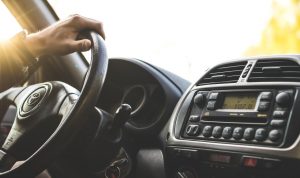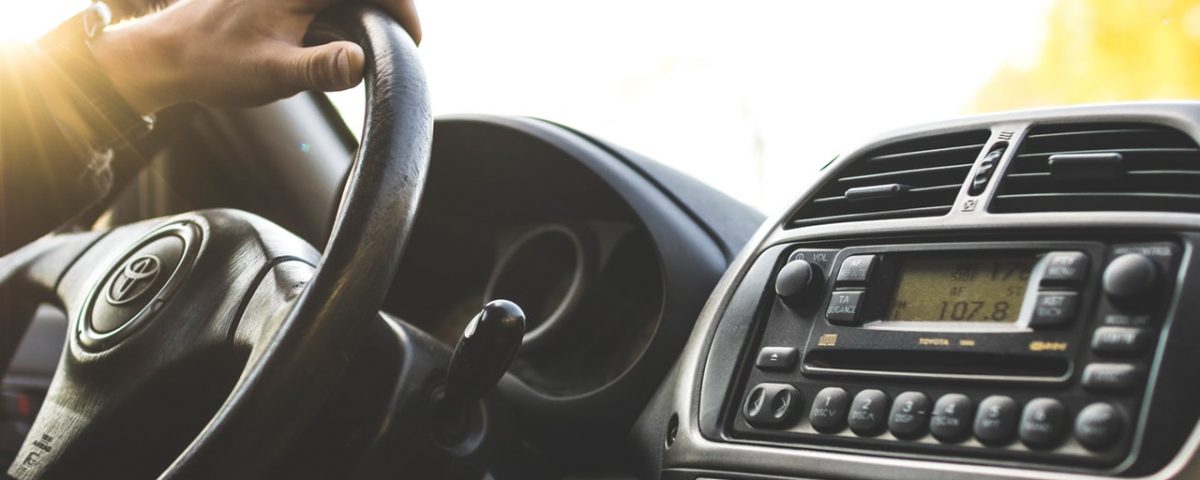Distracted Driving: More Than Just Driving While Texting

What to Do After Being Hit by a Driver Who Was Texting
June 7, 2019
What Should I Look for in a Personal Injury Attorney?
June 9, 2019Most people already know about the dangers of texting and driving (even if they do not always exercise the proper caution around it that they should). It has become a problem that is so prevalent that it has become totally synonymous with the phenomenon of distracted driving. However, distracted driving is a broad term that can cover a wide array of negligent behaviors while behind the wheel. You may believe that simply refraining from using your phone while you are driving is enough. Unfortunately, this may not necessarily be true.
Distracted driving has been a problem since the invention of the automobile, long before cell phones even existed. Simply put, distracted driving can refer to any act that takes your full attention away from the road. No matter how good you think you may be at multitasking, is it really worth it to try when distracted driving accounted for 8.5% of all car crash-related fatalities in 2017?
Types of Distractions
Generally speaking, distractions come in one of three distinct groups: visual, manual, and cognitive. As you may expect, visual distractions refer to those distractions that take your eyes off the road; manual distractions refer to those distractions that take at least one of your hands off the wheel; and cognitive distractions refer to those distractions that take your total and complete focus off the act of driving. The most dangerous distractions come as a combination of types. This means that even trying to change your stereo can qualify as a distraction.
Eating While Driving
Eating while driving may seem like a relatively harmless thing to do, especially if you are in a hurry to get to your destination. After all, as long as you have a hand on the wheel and your eyes on the road, you should be okay, right? The statistics, however, tell a different story. In fact, one study by the National Highway Traffic Safety Administration found that four in five accidents were caused by people eating while driving.
It seems only natural that eating while driving will cause accidents. After all, eating demands you to use all five of your senses. You are using touch to hold the food, smell and taste to actually eat it, and it is of course not uncommon to turn your gaze to the food to make sure that nothing spills out. You may also have to wipe your fingers of any grease or other food residue instead of having both hands on the wheel as you should. In other words, eating while driving qualifies as a visual, manual, and cognitive distraction.
This may even be true when you are taking sips of coffee while driving. You have to make sure that your tumbler goes back in the proper cupholder, that you do not spill anything on yourself… and so on and so forth. And, of course, the effects only get worse when combined with cellphone use.
Managing Distractions While Driving
Still, we know that not every ride can go as smoothly as planned. Things happen and we have to take care of them while we are on the road. Fortunately, there are steps you can take to minimize your chances of dealing with such occurrences. The Governors Highway Safety Association offers some useful tips on managing driver distraction:
- Make sure to silence your cellphone and stow it away somewhere out of reach before you start driving. Out of sight, out of mind.
- Let others know you are going to be on the road. Many cellphones have a “driver’s mode” that automatically alerts any callers or texters that you are currently available because you are driving. If your cellphone does not have this feature, it is easy to find apps that do.
- Pull over if the need arises. You may
 think you are good at multitasking, but as we have already previously discussed, the risk is simply not worth it. If you need to make a call, answer a text, look something up, get something from the backseat, or anything in between, the safest way to do so is to pull over first.
think you are good at multitasking, but as we have already previously discussed, the risk is simply not worth it. If you need to make a call, answer a text, look something up, get something from the backseat, or anything in between, the safest way to do so is to pull over first. - If you are traveling with passengers, ask them to help you with anything that would take your full attention off the road. Again, this is not just limited to cellphone usage. It can include activities as simple as changing the stereo.
- Prepare, prepare, prepare. If you are using a GPS to get to your destination, make sure to confirm your route before you start to drive. If you know you will want to change the music later on in your trip, simply queue it up so you do not have to worry about it later on.
- If you are traveling with pets or kids, make sure that they are properly secured. Be sure to give them everything they need before you start moving. If a situation arises, pull over to address it.
Seeking Legal Counsel
Unfortunately, accidents may still happen even after taking all proper precautions. This is especially true when considering that you cannot control the behavior of those around you. If you have suffered personal injury as a result of a car accident with a distracted driver, you may be entitled to seek out legal help and collect damages.
Dealing with an automobile accident is never something anybody wants to do—especially if it leads to injury. At Injury Victim Law, we are dedicated to helping car accident victims resolve their cases as expediently as possible. Although we are a Colorado-based firm, our qualified team of experts and investigators helps victims around the country. If you are seeking out a nationwide car accident attorney, we may be able to help. We act on three basic guiding principles: integrity, dedication, and commitment.
Contact us today to schedule a free initial consultation with an experienced member of our legal team. We will be sure to answer any questions and concerns you may have. We believe that you should not have to suffer for someone else’s mistakes. Let us help you protect your rights.

